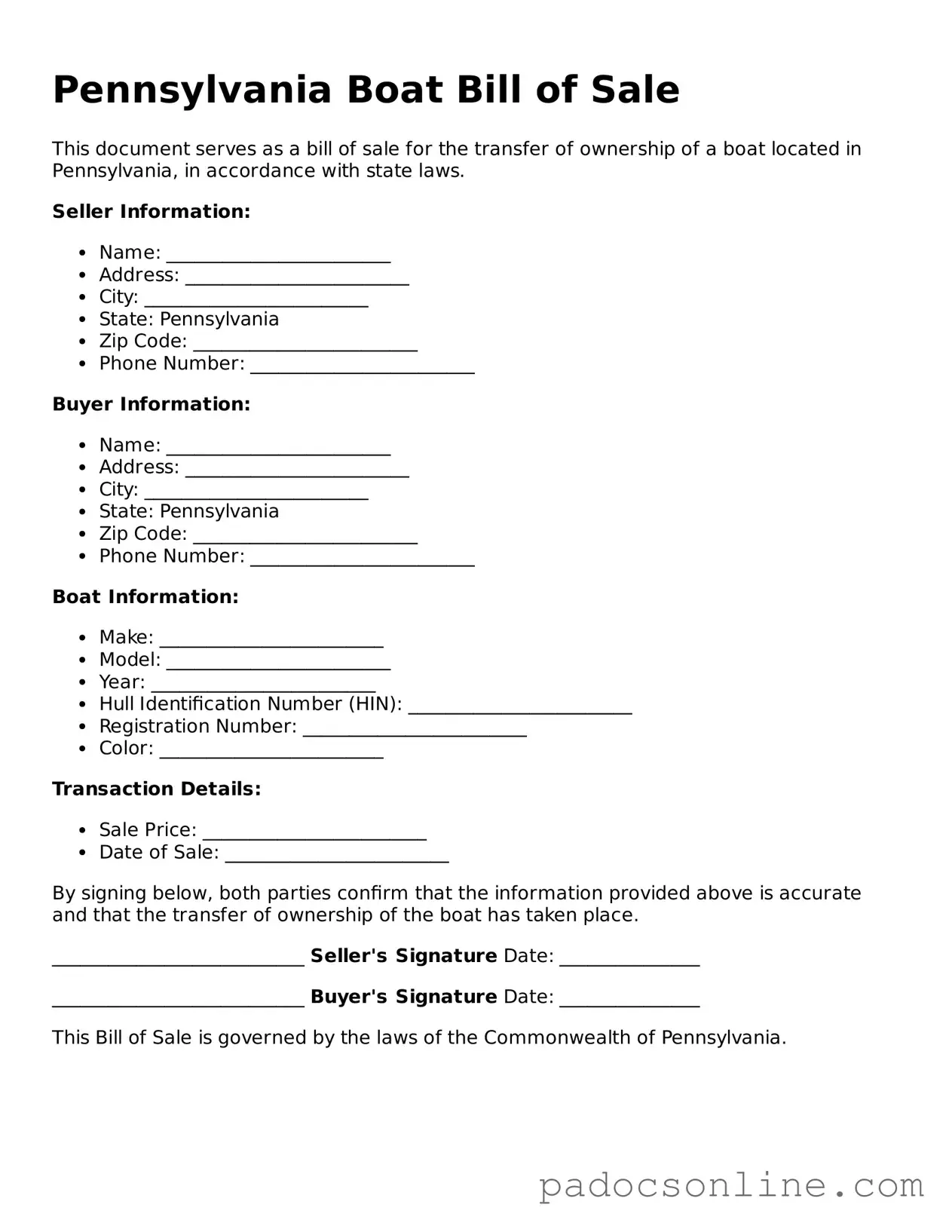Filling out the Pennsylvania Boat Bill of Sale form can seem straightforward, but many people make common mistakes that can lead to complications later. One frequent error is not providing complete information about the boat. Details such as the hull identification number (HIN), make, model, and year of the boat are essential. Omitting any of these can create confusion and may delay the registration process.
Another mistake is failing to accurately record the sale price. This figure should reflect the actual amount paid for the boat. An inflated or inaccurate price can raise questions during tax assessments or when transferring ownership. It's crucial to ensure that the sale price is both truthful and precise.
Many individuals also overlook the importance of signatures. Both the seller and buyer must sign the form to validate the transaction. Without these signatures, the bill of sale may not be recognized as a legal document, which can lead to disputes or issues with ownership verification.
Not dating the form correctly is another common error. The date of the transaction is vital for record-keeping and legal purposes. Failure to include the date can result in complications if the transaction is questioned in the future.
Inaccurate personal information is also a frequent mistake. The names and addresses of both parties should be clearly written and free from errors. Typos or incomplete information can complicate the transfer of ownership and may lead to legal issues.
Some people forget to include any necessary disclosures about the boat's condition. If there are known defects or issues, these should be clearly stated. Transparency in this area helps prevent misunderstandings and potential disputes down the line.
Not providing a copy of the bill of sale to both parties can create confusion. Each party should retain a copy for their records. This documentation can be crucial if questions arise about the sale in the future.
Another mistake is neglecting to check local regulations. While the Pennsylvania Boat Bill of Sale form is a standard document, additional requirements may exist depending on the county or municipality. Familiarizing oneself with these regulations ensures compliance and smooth processing.
Additionally, some individuals fail to keep a record of the transaction. Documenting the sale beyond the bill of sale can be beneficial. Keeping receipts or correspondence related to the sale can provide further proof of ownership and transaction details.
Lastly, a common oversight is not considering the tax implications of the sale. Understanding how the sale price affects sales tax obligations is important. Buyers should be aware of their responsibilities to report the purchase accurately to avoid any penalties.
